Sorry, this post took me so much longer to write than I had planned. Phonemic Awareness is such a broad topic, it's hard to narrow it down into a concise post yet also have it be helpful. Hope you get something out of it! : )
In case you missed the first one, check out Focus on Literacy: An Overview.
Phonemic Awareness is the ability to hear, identify, and manipulate phonemes or sounds. In phonemic awareness activities there is no discussion of letter names or written words, it is all oral. It is one of the most important of the Big Five for young children (not that the others aren't important but it is more developmentally appropriate for younger children and is the building block for many of the Big Five), and it is one of the easiest to work on with young children. Furthermore, it is an early predictor of later reading success and research has shown that weaknesses in phonemic awareness can lead to problems with reading development. There is a wide range of skills that encompass phonemic awareness, some being easier than others.
In case you missed the first one, check out Focus on Literacy: An Overview.
Phonemic Awareness is the ability to hear, identify, and manipulate phonemes or sounds. In phonemic awareness activities there is no discussion of letter names or written words, it is all oral. It is one of the most important of the Big Five for young children (not that the others aren't important but it is more developmentally appropriate for younger children and is the building block for many of the Big Five), and it is one of the easiest to work on with young children. Furthermore, it is an early predictor of later reading success and research has shown that weaknesses in phonemic awareness can lead to problems with reading development. There is a wide range of skills that encompass phonemic awareness, some being easier than others.
- Phoneme/sound isolation- the ability to isolate individual phonemes/sounds in a word
For example, knowing that /d/ (the little lines on either side of the letter represent the sound the letter makes) is the first sound in dog or /t/ is the last sound in cat (beginning sounds are much easier than ending sounds to identify and the middle vowel sound is the hardest).
- Phoneme/sound identity- the ability to identify sounds that words have in common
For example, knowing that dog and dad both have a /d/.
- Phoneme/sound substitution- the ability to substitute a sound in a word for a new sound
For example, being able to change the /f/ in fall for /t/ to make tall.
- Segmenting- the ability to break a word down into it's individual phonemes/sounds
For example, being able to break the word cat down into /c/, /a/, /t/
- Blending- the ability to take individual sounds and blend them to make a word (it's the opposite of segmenting)
For example, being able to take the sounds /c/, /a/, /t/ and know that they make the word cat
- Phoneme/sound deletion- the ability to take a sound away from a word and know what it left
For example, being asked to take the /c/ out of cat and having at left
- Onset- Rime manipulation- the ability to isolate, identify, substitute, segment, blend, and delete onsets (the beginning consonant or consonants in a word, like the /b/ in bat or /br/ in braid) and rime (also called the word family, like /aid/ in braid or /og/ in dog)
- Phonemic Awareness also includes rhyming, syllabification (breaking words into syllables or putting syllables together to make words), and assonance (also called vowel rhyme, when successive words have the same vowel sound, like "I made my way to the lake")
- Phonemic Awareness also includes rhyming, syllabification (breaking words into syllables or putting syllables together to make words), and assonance (also called vowel rhyme, when successive words have the same vowel sound, like "I made my way to the lake")
Most of the phonemic awareness activities that I do with Avery right now involve talking to her, reading to her, singing, and modeling. Two phonemic awareness skills that I focus on a lot right now are rhyming and alliteration (words that begin with the same sound).
One of the easiest ways to work on both rhyme and alliteration is through the use of books (yes, this is still phonemic awareness even though you are using written text because the focus is on the sounds not on the written words, the book is simply the tool to help you come up with the rhyme or alliteration).
As we read I'm sure to tell Avery the words that have the same sound and what sound that is. Like "Oh Avery, cat and car both start with a /c/. Can you hear the /c/ in cat and car? /c/ cat.../c/ car. They start the same! What else starts with /c/?" I do the same thing with rhyming words. "Stop and hop rhyme, Avery. Listen, stop...hop. What else rhymes with stop and hop?...hmm...how about pop, cop, top, drop, mop, shop, flop. They all rhyme."
Rhyming books we like:
Nursery Rhymes are of course great (such as Mother Goose by Long- that's the one we have)
Baby Beluga by Raffi
Down By the Bay by Raffi
Tumble Bumble by Felicia Bone
Snuggle Puppy by Sandra Boynton
Hugs and Kisses by Roberta Grobel Intrater
Fluffy Chick and Friends (no author given)
Fuzzy Bee and Friends (no author given)
Night-Night, Little Pookie by Sandra Boynton
Five Little Monkeys Jumping on the Bed by Eileen Christelow
The Noisy Egg by Judith Nicholls
Good Morning, Good Night by Melanie Mitchell
Ten Chirpy Chicks by Debbie Tarbett
Alliteration books we like (these are a lot harder to find then rhyming books but ABC books are usually pretty good):
Click, Clack ABC by Doreen Cronin and Betsy Lewin
My First ABC Book (no author given)
Chicken Little by Steven Kellogg
ABC book by Dr. Suess
A My Name Is Alice by Bayer
Six Sleepy Sheep by Jeffie Ross Gordon
Eating the Alphabet by Lois Ehlert
Alligators All Around: An Alphabet by Maurice Sendak
Sheep on a Ship by Nancy Shaw
How Do I Love You? by Marion Dane Bauer
Most, but not all, of the books I have mentioned are board books and geared towards children around Avery's age, if you are interested in books for older children, look here for rhyming books and here for alliteration books.
Another great way to work on rhyme is by singing songs. This one is easy too, you can do it anywhere and kids love it. Even as young as Avery is, she'll start dancing when we start singing to her. Here are some of our favorite rhyming songs:
"The Animal Fair"
"Kookaburra"
"Five Little Ducks"
"I've Been Working on the Railroad"
"Down By the Bay"
"Baby Beluga"
"Five Green and Speckled Frogs"
"I'm a Little Teapot"
"Hush Little, Baby"
"Baa, Baa, Black Sheep"
"Twinkle, Twinkle Little Star"
"The Name Game"
The list could go on and on, there are so many great children's songs with rhymes. I'm sure you have some of your own favorites!
Other than songs and books, most of the phonemic awareness work that I do with Avery is simply playing with words. I will take random words that I see, hear, or think of and use them to isolate sounds, identify sounds, substitute sounds, segment words, blend words, delete sounds, or manipulate the onset/rime. I also do a lot of clapping syllables. When Avery gets older, my goal is for her to join me in these word games.
Looking for phonemic awareness activities to do with older kids, take a look at this link. Many of these are games and activities that I did in my classroom. I love the block activity, I used that one a lot in reading groups.
One thing to be aware of when working with phonemic awareness is that you want to be sure you are pronouncing the sounds correctly. It is quite common for people to put a /u/ on the end of consonant sounds. For example saying /zuh/ instead of /zzzz/ or /fuh/ instead of /ffff/. You want to be sure that you are isolating the consonant.
One of the easiest ways to work on both rhyme and alliteration is through the use of books (yes, this is still phonemic awareness even though you are using written text because the focus is on the sounds not on the written words, the book is simply the tool to help you come up with the rhyme or alliteration).
As we read I'm sure to tell Avery the words that have the same sound and what sound that is. Like "Oh Avery, cat and car both start with a /c/. Can you hear the /c/ in cat and car? /c/ cat.../c/ car. They start the same! What else starts with /c/?" I do the same thing with rhyming words. "Stop and hop rhyme, Avery. Listen, stop...hop. What else rhymes with stop and hop?...hmm...how about pop, cop, top, drop, mop, shop, flop. They all rhyme."
Rhyming books we like:
Nursery Rhymes are of course great (such as Mother Goose by Long- that's the one we have)
Baby Beluga by Raffi
Down By the Bay by Raffi
Tumble Bumble by Felicia Bone
Snuggle Puppy by Sandra Boynton
Hugs and Kisses by Roberta Grobel Intrater
Fluffy Chick and Friends (no author given)
Fuzzy Bee and Friends (no author given)
Night-Night, Little Pookie by Sandra Boynton
Five Little Monkeys Jumping on the Bed by Eileen Christelow
The Noisy Egg by Judith Nicholls
Good Morning, Good Night by Melanie Mitchell
Ten Chirpy Chicks by Debbie Tarbett
Alliteration books we like (these are a lot harder to find then rhyming books but ABC books are usually pretty good):
Click, Clack ABC by Doreen Cronin and Betsy Lewin
My First ABC Book (no author given)
Chicken Little by Steven Kellogg
ABC book by Dr. Suess
A My Name Is Alice by Bayer
Six Sleepy Sheep by Jeffie Ross Gordon
Eating the Alphabet by Lois Ehlert
Alligators All Around: An Alphabet by Maurice Sendak
Sheep on a Ship by Nancy Shaw
How Do I Love You? by Marion Dane Bauer
Most, but not all, of the books I have mentioned are board books and geared towards children around Avery's age, if you are interested in books for older children, look here for rhyming books and here for alliteration books.
Another great way to work on rhyme is by singing songs. This one is easy too, you can do it anywhere and kids love it. Even as young as Avery is, she'll start dancing when we start singing to her. Here are some of our favorite rhyming songs:
"The Animal Fair"
"Kookaburra"
"Five Little Ducks"
"I've Been Working on the Railroad"
"Down By the Bay"
"Baby Beluga"
"Five Green and Speckled Frogs"
"I'm a Little Teapot"
"Hush Little, Baby"
"Baa, Baa, Black Sheep"
"Twinkle, Twinkle Little Star"
"The Name Game"
The list could go on and on, there are so many great children's songs with rhymes. I'm sure you have some of your own favorites!
I often do phonemic awareness work when we play with her alphabet blocks, great for alliteration
Other than songs and books, most of the phonemic awareness work that I do with Avery is simply playing with words. I will take random words that I see, hear, or think of and use them to isolate sounds, identify sounds, substitute sounds, segment words, blend words, delete sounds, or manipulate the onset/rime. I also do a lot of clapping syllables. When Avery gets older, my goal is for her to join me in these word games.
Looking for phonemic awareness activities to do with older kids, take a look at this link. Many of these are games and activities that I did in my classroom. I love the block activity, I used that one a lot in reading groups.
One thing to be aware of when working with phonemic awareness is that you want to be sure you are pronouncing the sounds correctly. It is quite common for people to put a /u/ on the end of consonant sounds. For example saying /zuh/ instead of /zzzz/ or /fuh/ instead of /ffff/. You want to be sure that you are isolating the consonant.
If you have any specific questions, just let me know and I will do my best to answer them!
I'll start working on the Focus on Literacy: Phonics post soon. Keep a look out for it!
Resources:
Phonemic Awareness - From WETA (DC) Public Television's Reading Rockets
Phonemic Awareness- Wikipedia











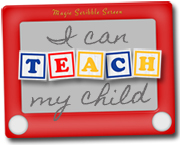





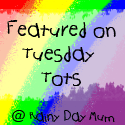
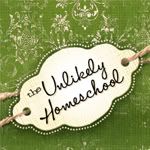

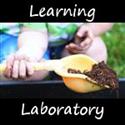


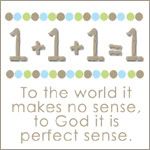






Congratulations, you won! http://organic-mama.ca/?p=1426
ReplyDeletePlease contact Adrienne through Etsy for your prize!
Wow, I'd have followed ya every if you weren't the star blog! This is awesome, and very helpful. I'm looking forward to more help!
ReplyDelete~K
bigklittlea.blogspot.com
This is a great post! I look forward to reading more. I'm your newest follower, hope you can follow me back.
ReplyDeletehttp://changingbutstillme.blogspot.com/
Your newewst follower from Thursday Blog Hop! Looking forward to looking around your blog more! Have a great rest of your week!!
ReplyDeletehttp://a-journey-not-a-race.blogspot.com
Great post. I love that you're focused on literacy. My kids are big bookworms and I love that. It helps them in all aspects.
ReplyDeleteI'll be following!
Thanks!
I am now one of your followers for Blog Hop Thursday and I look forward to reading more of your posts. Hope you will stop by and check out my page
ReplyDeletehttp://shhhhhjustbetweenume.blogspot.com
I found you on Thursday Blog Hop and am following you now! I hope you stop by my blog too!
ReplyDeleteAgain, I really love this series. Thank you so much. I love your book suggestions and your game suggestions. It's perfect that Nate & Avery are almost the same age. I feel like I have my own private literacy tutor :)
ReplyDeleteI love the blocks you have pictured! I've been looking for something similar, but haven't found them yet. Do you remember where you got yours?
ReplyDeleteThanks so much everyone! I loved writing it! Randalin, my mom got them for us last year at Wal-Mart, they are Garanimal Wooden Blocks. Avery loves them!
ReplyDelete